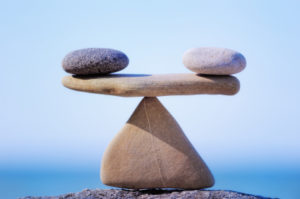
It’s not just love that makes the world go around. Trust is equally important.
“Love makes the world go ’round,” according to the famous saying. But, in reality, it’s trust that makes the world go round, trust that is at the center of so many points of human interaction.
Currency. We use the dollar because we trust the US government stands behind it. Without that trust, we’d be stuck in a barter system with a much lower standard of living. Our currency used to be backed by gold. We trusted our government enough that it removed the gold standard, opening opportunities for even more commerce. The dollar is the world’s trade currency because there is more trust in the US central banks than others.
Business partnerships. Sure, contracts, long and short, codify the agreement. But ultimately, contracts are built on trust. Each party trusts that the other will try to fulfill its commitments or, there would be no contract negotiations with which to start.
Purchases. When I buy from Nordstrom I trust the product will not fall apart after a few wears. Not so with an online Chinese no-name brand.
Relationships. We all know about the role of trust here and the consequences of losing trust.
Leadership. The number one requirement a leader must meet to earn followers is trust. A global study by Kouzes and Posner involving organizations of all sizes from different sectors established three criteria for followership (in order): Do I trust you to do what you say? Does your desired direction inspire me? Are you competent to get us there?
Trust has boundaries. I trust my husband to be loyal, but cleaning up the dishes while I am away on a trip would be an unreliable expectation. I have faith that my government will honor the FDIC protection on my bank account, but not to be the most efficient provider of every service.
The hardest thing about trust is that it is given readily but very challenging to earn back once the bond of trust breaks.
A classic example in the news this week is Google. It is partnering with Ascension Health System in a project called Nightingale to find data based insights to help Ascension improve healthcare. There’s value in the partnership. Google has artificial intelligence skills. Ascension has patient data. But there is so little public trust in Google’s ability to keep data private that a federal probe of the project has started and there is public pushback against Ascension. (Note that a lot of the concerns are not fact-based.) Ascension feels it can trust Google to protect data that Ascension owns. Perhaps it can. But Ascension should have been, in my view, more sensitive to how its patients, clinicians and the US Congress view Google.
Now Google wants to manage our banking, as does Facebook. Has either company earned consumers’ trust to pull this brand extension off successfully? Both companies make their money by monetizing our online lives. Can we trust them to enter a market space that demands perhaps even greater privacy? According to a McKinsey study, 65% would not trust Facebook, and 42% would not trust Google to handle their finances. As necessary, what problem do we trust these platforms to solve to with worth the time and frustration of switching banks?
Every company and leader should ask, “What do I want people to trust me to do?” I trust Walmart to have low prices. I would not trust Walmart with being fashionable. Nor do I expect Nordstrom to have the best prices. I trust that Trump will reduce regulations, not to tell the truth.
When trust erodes, nations can end up with hyperinflation or lose alliance partners. Suppliers lose customers. Leaders lose their ability to attract and retain talent and build effective teams. And brands lose their right to play, mitigating their growth.
If you’ve earned trust, invest to protect this vital asset.

Leave a Reply